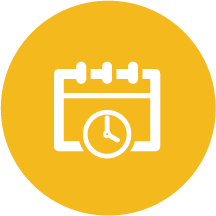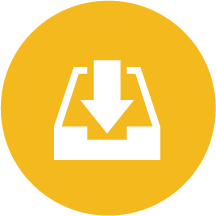General UK University Programmes
General UK University applicant
Updates for the UK Personal Statement
For the 2026 Entry (applicants apply to start University in 2026), the UCAS Personal Statement will change from one longer piece of text to three separate questions. At Cana, we keep track of the latest changes and updates related to UCAS. Come discuss with us to plan ahead for the Personal Statement!
What is UCAS?
Students apply to UK universities through a centralised system called UCAS (Universities and Colleges Admissions Service). There are two major deadlines for UCAS applications that students should keep track of: mid October for applicants to Oxbridge and medical-related subjects (such as medicine, veterinary science, dentistry), and late January for all other applicants.
When filling out your UCAS application, you will be asked to choose your programme/s, your academic background and grades (existing and/or predicted grades), personal statement, school reference, financial situation and any employment experiences.
How many university programmes can I choose?
You can choose up to 5 programmes in your UCAS application. However, there are some exceptions to this rule. For example, you can only apply to a maximum of four medical-related programmes (medicine, veterinary science, dentistry), and you can only apply to one of Oxford or Cambridge.
When you choose the 5 programmes you are interested in, remember that you can only submit one personal statement in your application. Thus, we generally advise students to focus on one subject area (e.g. economics programmes from different universities), or related subjects (e.g. Economics from LSE, together with Economics and Management from King’s College London).
What are the key tasks involved in the application process and When should I start preparing?
Key tasks involved:
- Exploring potential subjects and building subject-related experiences
- Personal statement writing
- Admissions test (for some universities and specific disciplines)
- Interviews (for all Oxbridge, medicine, dentistry and veterinary courses, and some sciences and engineering courses at Imperial College)
- Predicted grades (provided by your school)
- Reference letter (provided by your school)
Exploring potential subjects and Building subject-related experiences:
It is never too early to start considering which subject area you would like to pursue at university. We encourage you to begin exploring potential subjects 2-3 years before high school graduation . After you have decided which subject area to focus on, you can start building your profile by accumulating readings and subject-related experiences.
Personal statement:
For personal statement writing, the ideal time to write is during the summer holiday before your final year of high school. We find that during summer holidays, students are usually less distracted by school work and thus tackle the personal statement more effectively.
If you are unable to do it during the summer holiday, we recommend you dedicate a buffer of two months to write the statement, as it involves reading about the subject, reflecting on your learnings, actually writing the personal statement, and, of course, revising your drafts. Most students write three to four drafts before finalizing their statements.
Admissions test:
Certain subjects or universities may require students to take an admissions test. For instance, the law programmes from LSE and UCL require students to take the LNAT (Law National Aptitude Test) admissions test.
Interview:
While most non-Oxbridge programmes do not include an interview in the admissions process, there may be certain courses that do. Imperial College, for example, includes an interview stage for some of their engineering and science programmes. Remember to double check if the programmes you are aiming for require interviews.
In addition, medical-related programmes such as medicine, dentistry, pharmacy, and physiotherapy usually interview their candidates, as these programmes involve frequent interaction with patients. For details on the medicine or the MMI interviews, please visit our medicine page.
Interviews usually take place from November to March, so consider beginning your preparations around August.
How to prepare for my personal statement
The personal statement is an important opportunity to showcase your academic commitment to the subject that you want to study and your academic potential.
It is important to note that for the 2026 entry, the UCAS personal statement will change its format from a longer piece of text to three separate questions. The questions include:
- Why do you want to study this course or subject?
- How have your qualifications and studies helped you to prepare for this course or subject?
- What else have you done to prepare outside of education, and why are these experiences useful?
Your responses should demonstrate how you have already engaged with your subject of choice above and beyond your studies at school, and how you have further developed your interest. For example, you could talk about a research project that you undertook, independent reading and study you have carried out, or essay competitions you have entered.
Tutors are looking for intellectual curiosity and personal reflection, so rather than listing out everything you have read or done, pick the most relevant and important experiences that you have and reflect on your learnings from them.
To discuss how to tailor your personal statement based on the new format change, please contact us for a 30-minute free consultation.
How should I prepare for the interview?
If you are applying for medical-related programmes such as medicine, dentistry, pharmacy, and physiotherapy, most schools will either use an MMI (Multiple Mini Interviews) or traditional panel style in their interview process. In an MMI , your interview will be divided into several stations, each of which has a different interviewer assessing you on a different quality; for example, your communication skills or analytical skills. In traditional panel interviews, you will likely meet two or three faculty members who will ask you a number of questions about yourself and the subject you are applying for.
Imperial College also includes interviews for some of their engineering and science programmes, and the interviews are usually conducted in a traditional panel style. Before the interview, make sure you do research on the subject area, especially topics that you have discussed in your personal statement.
Interviews usually take place from November to March, so start preparing around August. Practice giving your answers aloud, and try doing so in front of a mirror or with a friend. At Cana, our consultants are experienced in coaching interviews and conducting mock interviews so you are familiar with the interview process.
Interested in law: What is the LNAT?
LNAT is used by UK universities as part of their criteria to determine if a candidate is suitable for their law programmes. While not every law programme requires the LNAT, many of the top schools, such as Oxford, Cambridge, LSE, King’s College London, include the LNAT as part of their admissions process.
The test takes 135 minutes and comprises two major parts: Section A, which consists of 42 multiple-choice questions, based on 12 argumentative passages; and Section B, which requires students to write an essay on one of three given topics. The LNAT is not testing your knowledge of law, but rather your ability to express your views, as well as analyse, interpret, and comprehend information.
The LNAT testing begins from September and ends in January. If you are applying to Oxford or Cambridge, you should take the test by mid October. Please note that you can only take the LNAT once in each academic cycle, so make sure you prepare well in advance.
If you are interested to learn more about the LNAT, please visit our LNAT page.
Interested in Dentistry: What is the UCAT?
UCAT (University Clinical Aptitude Test) is used by a consortium of universities in the UK, Australian and New Zealand for their medical and dental degree programmes.
The UCAT is a two-hour, computer-based test which assesses a range of mental abilities identified by universities as important to practicing in the fields of medicine and dentistry. It consists of five separately timed subtests with each containing a number of questions in a multiple-choice format. The five subtests include verbal reasoning, decision making, quantitative reasoning, abstract reasoning, and situational judgement.
UCAT testing begins from July and ends in September/October (the dates are updated every year). Please note that you can only take the UCAT once each year, so make sure you prepare well in advance.
If you are interested to learn more about the UCAT, please visit our Medicine page and UCAT page.
Do I need to submit additional documents for art related disciplines?
If you are applying for art-related disciplines, such as fine arts and architecture, you need to submit your art portfolio according to the university’s requirements.
Apart from the portfolio, universities may ask you to complete an assessment task based upon your application. For example, UCL’s Architecture BSc asks students to submit a task responding to a brief, which changes every year.
How do I apply for the programmes in the performing arts in the UK?
If you are interested in performance-based music, dance, drama or musical theatre, you should apply to UCAS conservatoires. The deadlines for UCAS conservatories can be different from the regular UCAS system, so make sure you check the latest date on the official UCAS website.
For performance-based subjects, you are likely to be asked to do an audition. The conservatoire will contact you about the details after you have submitted your application.
Commonly Asked Questions
OUR SUCCESS STORIES
Here at CANA Elite, we truly believe that every student is unique and has the potential to reach their goals with the right guidance. Academic excellence is derived from both passionate teachers and eager students. That is why we provide a unique learning experience tailored to each individual student. Named after the location of the first miracle in the Bible, we hope CANA elite can be the place of miracles for all our students, allowing them to achieve their dreams.







